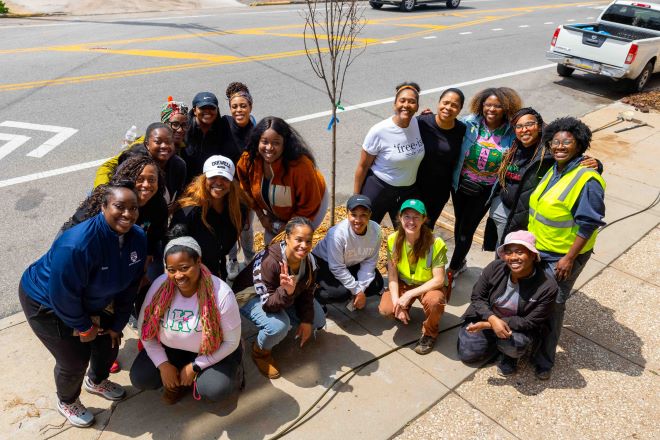As we prepare to mark the country’s 250th anniversary next year, it is not too late to create legacies that will positively impact the expected visitors and city residents — but they don’t need to be large-scale monuments or buildings.
While past anniversaries have left behind long-lasting landmarks such as Memorial Hall (now the home of the Please Touch Museum) and the African American Museum in Philadelphia, in 2026 Philadelphia needs investment in existing infrastructure, institutions and communities. Instead of adding new venues, public spaces or monuments, we should seize this opportunity to reinvest in the city itself and ensure Philadelphia makes its best presentation for visitors and residents alike.
Philadelphia confidently boasts a wealth of treasures that make it a great city. Our position as a destination for theater, culture, quality and diverse cuisine, public art, sporting events and dynamic public spaces is incredibly strong. However, as residents and visitors have noted, Philadelphia’s reputation suffers from inadequate public transit, accessibility, cleanliness, maintenance and visual environment.
Some cities may need impressive legacy projects to stand out and be noticed. Perhaps the Centennial Exhibition of 1876 helped put our city on the map for national and global audiences, but in 2025, Philadelphia is a great city that has benefitted from decades of significant investment spurred by vision and philanthropy, not driven by major milestones.
In the past 25 years alone, we have built the Kimmel Center for the Performing Arts, the Independence Visitor Center, the new Liberty Bell Center, the new home for The Barnes Foundation, the National Constitution Center, the Museum of the American Revolution, and the Weitzman National Museum of American Jewish History.
Spruce Street Harbor Park and Dilworth Park have rebirthed public spaces; Independence Mall and the Fairmount Water Works have enhanced public access; Philadelphia’s Magic Gardens, the National Liberty Museum, and The Met have opened inspirational venues to the public; and the trails along the Schuylkill and Delaware rivers provide new recreational opportunities and connect neighborhoods. Last year, the Independence Historical Trust dedicated the Bicentennial Bell Garden, and Calder Gardens will open this year.
If we do our job right in 2026, more company is coming.
We are home to one of the world’s largest collections of public art, many of which pay homage to important historical and cultural figures while also beautifying the city. Public art has enriched many neighborhoods, including South Philadelphia, Northern Liberties, Kensington and Fishtown.
Today’s cities are not defined solely by their skylines. Modern destinations are judged by livability, quality of life, accessibility, and sustainability.
Visitors are coming. The World Cup alone ensures that first-time guests from around the globe will be here. It is our hope that the full calendar of Semiquincentennial events — starting in the fall of 2025 with the 250th anniversaries of the Navy and Marine Corps — will attract record visitation and deliver major economic impact. The City needs to roll out the red carpet for visitors to have the best possible Philadelphia experience, guaranteeing they will return and tell others how great Philadelphia is.
The legacy we need from the Semiquincentennial is to ensure that the Philadelphia experience is at its best. Fill every sidewalk pit that is missing a healthy tree. Paint everything. Replace old or damaged signage and add new signage. Add signage for foreign languages. Fill every prominent and random planter with colorful flowers. Fix sidewalks and streets. Repair and add bus shelters. Clean transit stations. Ensure that we fulfill Mayor Parker’s vision of a clean, green and safe city. Company is coming. We should invest our limited funds to showcase Philadelphia’s enviable assets and experiences.
In other words, let’s focus on enhancing stewardship over adding spectacle. And when 2026 ends, let’s invest the revenue generated through City and state taxes into continuing this legacy to keep Philadelphia at its best for its residents. If we do our job right in 2026, more company is coming.
Bill Gehrman is Founder & CEO of En Route, a strategic marketing agency focused on tourism, civic and cultural projects. Prior to founding En Route in 2007, Bill served as director of marketing for the Philadelphia Convention & Visitors Bureau.
The Citizen welcomes guest commentary from community members who represent that it is their own work and their own opinion based on true facts that they know firsthand.

